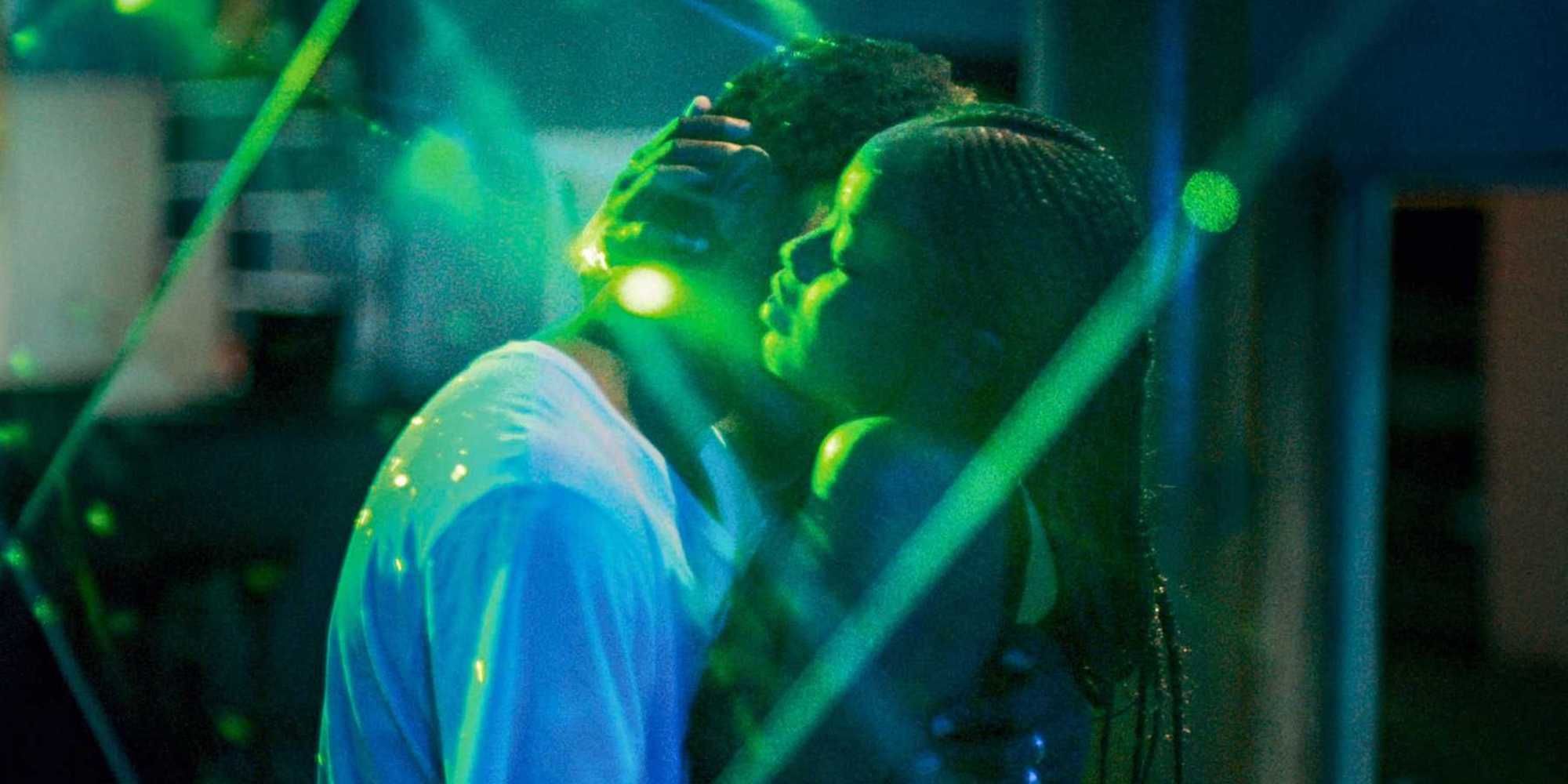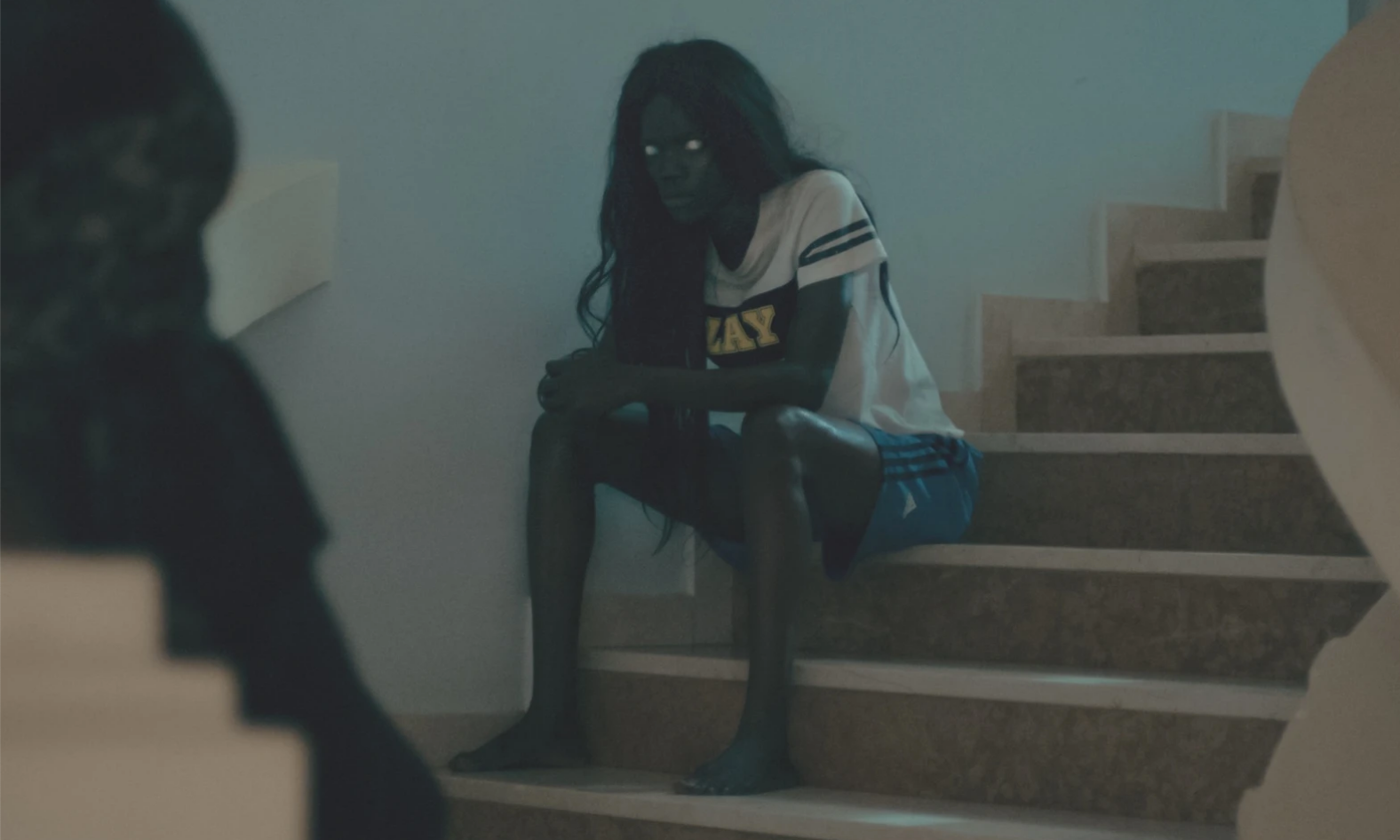A specter is haunting Senegal -- maybe not exactly the specter of Communism, but of a working class ready to take what is rightfully theirs. Without going into a long lecture on the whole complicated economic/political history of Senegal, this is the impression director Mati Diop provides of the particular situation in the opening minutes of his movie, Atlantics: a greedy boss isn't paying his workers, and the workers are angry and desperate, ultimately driven to take a dangerous voyage to Europe in the hopes of eeking out a living.
Atlantics shares its title with Diop's 2009 short documentary about Senegalese refugees crossing the ocean. This feature film, however, is not a documentary but instead a work of magical realism. Here, there are actual specters haunting Senegal. Stories about the afterlife are generally based on ideas about justice; of reward and punishment that is routinely denied within our regular lifetimes. The feature Atlantics sees the supernatural as a means to enact the poetic justice the documentary version could not provide.
The main viewpoint character of the film, Ada (played by Mame Bineta Sane, one of many non-professional actors in the film), is engaged to marry the wealthy Omar (Babacar Sylla). Her heart, however, is with Souleiman (Ibrahima Traoré), one of the workers embarking to Europe. He never got to say goodbye and she has good reason to believe she'll never see him again. Her friends are divided between a group of party girls and a group of observant Muslims, both cliques looking down upon each other and neither sympathetic to her deep sadness.
Saying anything more about the plot would inevitably lead to spoiler territory, so let's just say that Atlantics tells a compellingly strange and emotionally powerful story. It takes its time to set things up and get to the most interesting material; those who don't have the patience for the slower rhythms of art films might have trouble getting into it before it gets really good. Those who stick with it, however, will be highly rewarded. Much credit has to go to Fatima Al Qadiri's electronic score for keeping up the momentum in those early parts of the film; those long shots of waves crashing are much easier to appreciate when they have such beautifully eerie musical accompaniment.
Mati Diop became the first black woman to have a feature film in competition at the Cannes Film Festival; Atlantics ended up winning the 2019 festival's Grand Prix (the second place prize after the Palm D'or, which went to Parasite). As a meditative ghost story unconcerned with scares, it brings to mind Oliver Assayas' Personal Shopper, which played at Cannes three years ago. Comparing the two films, Atlantics comes out the stronger movie by virtue of more strongly tying its different story threads together and by not whiffing out on the ending.
Netflix is hoping Atlantics will do well at the Oscars as Senegal's submission for Best International Film, but this Thanksgiving weekend, it's certainly been overshadowed by the streaming service's other big movie premiere, The Irishman. Looking at the online discourse surrounding The Irishman, with some passionately supporting the film as a masterpiece of serious "cinema" and others dismissing the film as yet another "old white guy movie," might we suggest Atlantics might be worth some of both of these crowds' shared energies? Both a high-quality art film and a black feminist statement, it should please both of those sides in The Irishman debate... assuming those sides are actually serious about art and diversity respectively and aren't just feuding a proxy war over Scorsese's MCU criticisms.
Atlantics is now streaming on Netflix.


